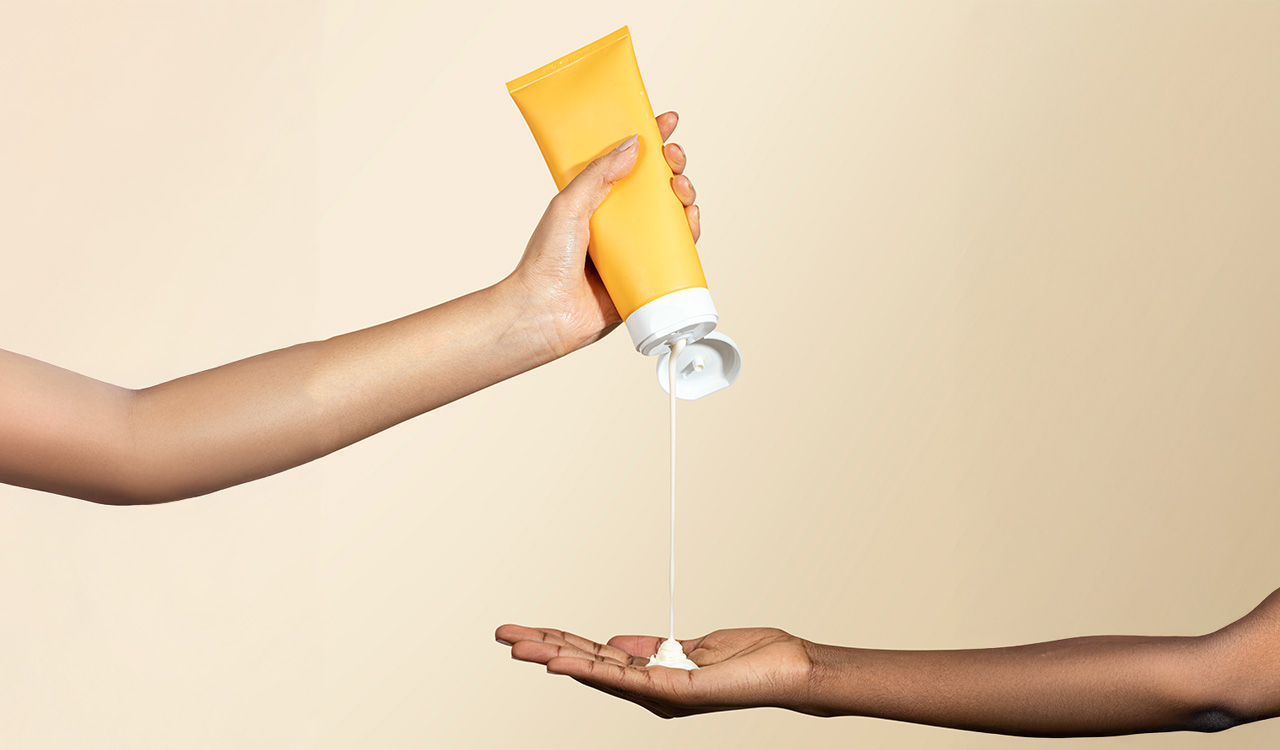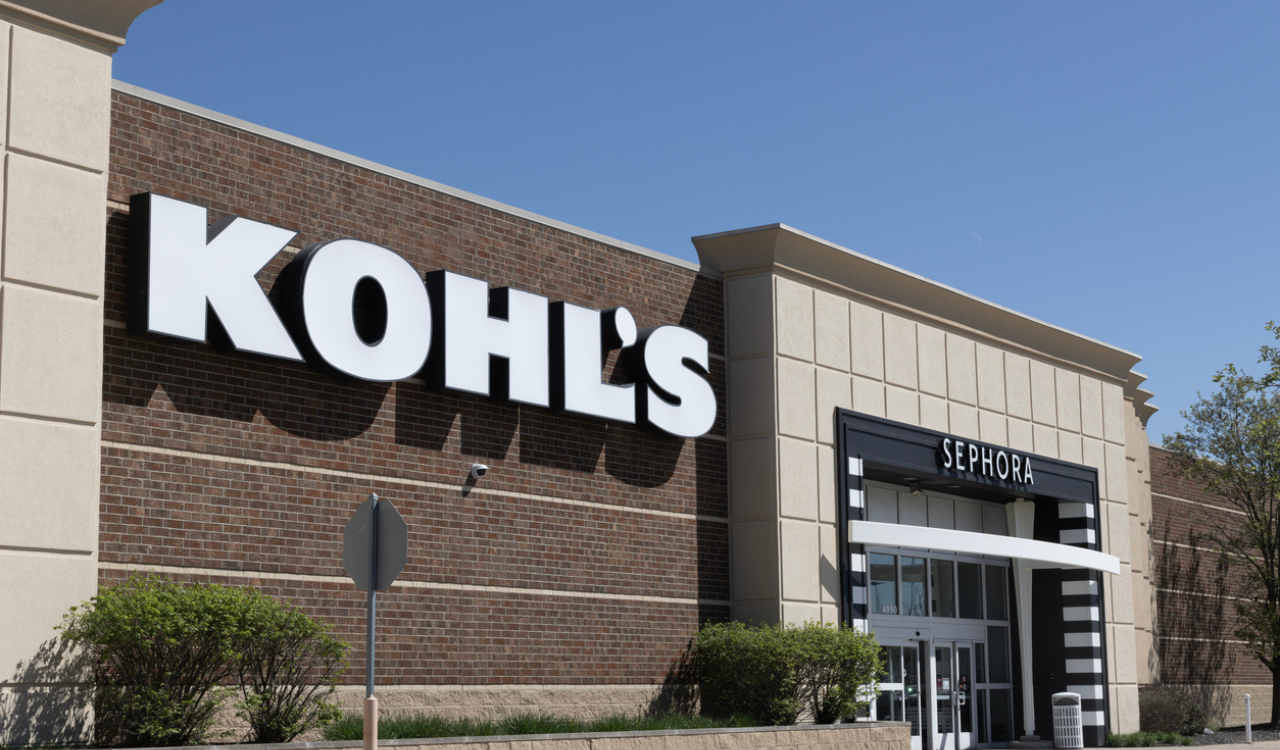It’s 2025, summer is right around the corner and sun worshippers are about to slather “suntan lotion” all over their paler winter skin. So why is the known human carcinogen benzene still finding its way into myriad sunscreens lining American drugstore shelves? Further, why does benzene play a role in so many of the acne products U.S. citizens of all ages use to clear up pesky breakouts?
Chemical straighteners have contained formaldehyde, a known human carcinogen also responsible for nervous system disorders, respiratory problems and skin conditions, since as early as the 1920s. When combined with heat, as it always is when hair is chemically straightened, it’s toxic not only for the consumer but for the hairstylist administering the treatment as well.
Benzene Behind the Times
In short, blame the creaky old Food, Drug and Cosmetic Act. Instituted in 1938 (yes, you read that right – 87 years ago), prohibits the Food & Drug Administration from regulating beauty products, save for color additives, before they go to market.
After they go to market? All bets are off. And that’s what’s driving an uptick in recent beauty product recalls, including sunscreens and acne remedies laced with dangerously high levels of benzene, a chemical compound “intermediate” used to produce other chemicals (from dyes and rubber to plastics and pesticides); it’s also found naturally in forest fires and volcanoes. Previously, beauty product recalls were issued for dry shampoos and spray deodorants containing benzene. In fact, when that happened, in fall 2022, Unilever yanked a whopping 19 dry shampoos across its Nexxus, Dove and Tresemmé brands.
But more recently – as in the first quarter of this year – the beauty product recalls have mostly been centered around acne fixes. All contain benzoyl peroxide, which can evidently break down and morph, in a sinister fashion, into benzene. While the FDA actually allows a miniscule amount – two parts per million (2 ppm) – of benzene, Valisure, an independent research lab that does third-party safety testing on consumer goods, found levels up to 100 ppm and sounded the alarm.
Among the beauty product recalls cited are La Roche-Posay Effaclar Duo Acne Spot Treatment, Walgreens Acne Control Cleanser, Walgreens Tinted Acne Cream, Proactiv Emergency Blemish Relief Cream Benzoyl Peroxide 5%, Proactiv Skin Smoothing Exfoliator and SLMD Benzoyl Peroxide Acne Lotion.
Onus Is on Beauty Brands to Police Themselves
When cosmetics are recalled, it’s not as if the FDA rolls up to your local CVS with an empty box and sweeps the shelves. Rather, it puts the onus on the brands to do that while alerting consumers that the recall has been issued.
In some cases, isolated batches of particular products will get contaminated forcing a voluntary recall. That’s the case with Gen Z favorite Drunk Elephant, which recently had to scoop up close to 100,000 units of its Beste No. 9 Jelly Cleanser, Protini Polypeptide Cream and Lala Sample Packettes of multiple products.
Another Gen Z-beloved brand – Summer Fridays – got firmly in front of a recall situation on social media. After multiple accounts of redness and irritation caused by its Jet Lag Mask began surfacing online, the brand took to Instagram to offer full refunds and share the news that the product is being reformulated without essential oils. The brand also vowed to establish “new, more stringent manufacturing protocols using OTC-level guidelines to ensure each step in the manufacturing process is carefully monitored and checked for full compliance and adherence to our high standards.”
Disproportionate Toll on Black Women
If only the makers of chemical hair straighteners – not to mention the FDA — were as invested in consumer safety as Summer Fridays. In its excellent and thoroughly alarming two-part investigation, “Dereliction of Beauty,” the watchdog publication Inside Climate News delves into the literally deadly ways Black women have been underserved by America’s all but nonexistent cosmetic regulation.
Specifically, Inside Climate News takes aim at formaldehyde, a star ingredient in a massive chunk of the chemical relaxers Black women have relied on for decades to present a pop culture-defined more palatable and “business-like” version of their natural coils. I strongly urge everyone to read this investigative report in its entirety but allow me to topline the issue at hand.
Chemical straighteners have contained formaldehyde, a known human carcinogen also responsible for nervous system disorders, respiratory problems and skin conditions, since as early as the 1920s. When combined with heat, as it always is when hair is chemically straightened, it’s toxic not only for the consumer but for the hairstylist administering the treatment as well.
Way back in 1987, the Environmental Protection Agency sounded the alarm about formaldehyde. This was followed by a damning study by the International Agency for Cancer Research – an arm of the World Health Organization – a year later. Flash forward to 2025 and the FDA still has not banned formaldehyde in chemical relaxers. If that doesn’t tell you we’re largely on our own in all this, I don’t know what does.
The Potential RFK Jr Effect?
It’s become almost a cliché, if not comical, to compare the number of banned cosmetic ingredients in the EU (ranging from 100 to 2400, depending on your source) with the U.S. (11). Tasked by President Donald Trump to “go wild on health,” it will be interesting to see when – or even if – the newly appointed United States Secretary of Health and Human Services will turn his attention to the beauty industry.
In broad strokes, Kennedy is anecdotally anti-pharma. One wonders what he might make of the cosmetics industry’s biggest lobbying body, the Personal Care Products Council (PCPC), which is known to fiercely protect Big Beauty from excessive ingredient and manufacturing oversight. At first blush, PCPC seems like exactly the kind of group Kennedy would have a big, big problem with. And given his fixation with ingredients he deems toxic, formaldehyde-laced hair relaxers just might be headed for the scrap heap.
MoCRA: A Small Step in the Right Direction
Passed by Congress in 2022, MoCRA (Modernization of Cosmetics Regulation Act) was heralded as a huge step up from the 1938 Food, Drug and Cosmetic Act. But how effective is it when it still doesn’t require the beauty industry to ban – or even require consumer notification of – egregious ingredients like parabens and phthalates?
Upping the count on banned ingredients wasn’t necessarily the point of MoCRA, rather, its chief goals are to widen the purview of the FDA regarding manufacturing oversight, to boost transparency regarding potentially allergenic masking fragrances and to institute standardized product-testing processes, for, say asbestos in talc.
As for troublesome ingredients, it looks like we’ll all need to continue to be diligent label-scrutinizers for the foreseeable future. Consumers will have to assert their personal power to search for “recalled cosmetic products” on a regular basis. Vigilance may prove to be the best self-defense.





